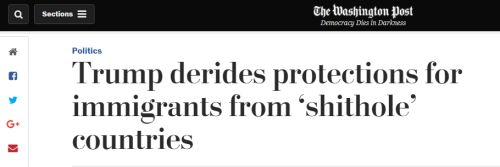One of the occupational hazards of being a lexicographer on social media is that you are often subjected to arguments about whether something is a word or not. Lexicographers see these complaints and swiftly scroll right on by them, though we do sometimes indulge in a judicious (and perfectly justified) subtweet. We’ve learned that arguing with people about whether something (usually “irregardless“) is a “real word” is a Sisyphean exercise in futility, and lexicographers get enough of that at work.
But that doesn’t help you, the person being hollered at on Twitter that “mines” isn’t a real word. Who better to tell you what a word actually is? So in the interest of settling all those arguments, forever (amen and amen), here is a short (senses 1 and 2) lexicographer’s guide to “real words.”
I think [insert reviled word here] isn’t a real word.
Let’s back up. Why do you think it’s not a real word? Because by a linguist’s definition, if it communicates meaning to an audience, then it’s “a real word.”
That’s ridiculously broad.
Oh gurl:
How do you communicate thoughts to an audience? You might communicate by uttering a string of phonetic sounds, making signs in a manual language, or writing a series of characters. Meaningful units of these sounds, signs, or written characters are often what we would consider to be words.
In short: if it’s part of a language system and communicates meaning, linguists consider it to be “a real word.”
But it’s illogical/ugly/stupid.
Just because you don’t like it doesn’t make it somehow “not real.” This is one of the more absurd notions that people have about language: that the mere dislike of a word invalidates its very existence. You’d never see that logic deployed effectively anywhere else in the real world. [Ed. note: The White House is not the real world.] I hate heat, for instance, and think temperatures above a very dry 80F can just nope right on out of here–but summer arrives every year, like clockwork, just to piss me off. Should my personal feelings about the power of the sun ruin everyone else’s beach vacation?
Besides, “illogical” and “stupid” rely on your knowledge base, and lemme tell ya, that’s smaller than you think. You may think that “inflammable” to mean “flammable” is illogical, because “in-” means “not,” but you would be wrong. “Inflammable” comes from the Latin inflammare, which means “to inflame” or “to burst into flame.” The “not” “in-” has nothing to do with it. “Inflammable” meant “flammable” before “flammable” meant “flammable”!
And even if a word is illogical or stupid, so what? You know how many completely unremarkable words arose from a stupid misreading? You use “cherry” and “apron” just fine, even though “cherry” came about because some 14th-century doofus thought the Anglo-French “cherise” was plural (it wasn’t), and “apron” came about because court clerk read “a napron” as “an apron” and rendered it as such, and then future readers thought, “Oh, man, the clerk to Edward III says it’s ‘apron,’ I better get in line,” even though that same clerk used “napron” later in the Household Ordinances, and here we are.
Language is not math. Language is people, and people are a mess. Yes, you too.
But this word is jargon, and jargon is meaningless, so it’s not a real word. Use words that actually mean something!
Jargon is, properly, the technical language of a particular group or activity. It can also refer to obscure and often pretentious language marked by circumlocutions–a definition that is pretty damned jargony. But not all jargon (sense 1) is jargon (sense 2). Hell–not all jargon (sense 1) is even all that technical! If you like a sport, have a job, go to school, have a hobby, or watch TV, then you know and use jargon. You can stream the Royal Wedding online while cabling an Aran sweater, checking the box scores for last night’s game and helping your kid figure out their math homework using manipulatives when the commercial breaks are on. Your whole life is marked by jargon of one sort or another, so stop getting your knickers in a knot over it.
But this supposedly real word isn’t in your/a/any dictionary!
It’s a common misconception that dictionaries enter every word in a language. This is a misconception started by dictionary companies who were desperate to outdo one another in sales and so made some dubious claims about how their dictionaries were “the sum of all human knowledge” and how, in dropping some bucks on one, you could “hold the English language in your two hands.”
There are many, many, many more words that do not make it into dictionaries than do, and this is the nature of the dictionary. If English is a swift moving river, then a dictionary is a cup of water scooped from that river: static, small, hopefully a good representative sample of that river, but not the river.
There are lots of reasons why a word might not be entered into a dictionary. First, what do we consider discrete words? Is the noun “compact” a different word than the verb “compact”? Are the different meanings of the noun “compact” different words? What if the different “compacts” come from different etymological sources? Is every inflection of a word a different word than the root? What about compound words like “slingshot”? Is that a different word from “sling” and “shot”? What about potential compound words, or potential inflections that we might not have now but we could at some point in the future (“mouses”), or potential affixal uses (“unfriend”)? What about words that no longer exist? What about initialisms and abbreviations? Are these all discrete words?
Incidentally, this goat rodeo is also why people who tell you that English has however many hundred-thousands words in it are full of bullshit (which can be one word or two words, depending on how you reckon).
Every professionally edited dictionary has criteria for entry–generally speaking, widespread use in printed prose for a sustained period of time–and many words never meet that criteria. Even good words! “Prepone,” a brilliant verb which means “to reschedule to an earlier time than originally scheduled” and is based on “postpone,” doesn’t yet meet the criteria for entry at Merriam-Webster, and it’s not only a clever coinage, but so frickin’ handy! Does away with the dumb confusion caused by “move back” and “move up” (“We’re moving the 10am meeting back to noon.” “So you’re moving it up to noon?” “No, we’re moving it back to noon.” “Was it originally at noon?” and then everyone sounds like a pathetic mashup of The Confederacy of the Dunces and “Who’s On First”). Everyone should use “prepone” in print, but not enough people do, and so it languishes in the database, noticed but not defined.
And there’s another sticking point. For a word to get into a dictionary, it needs to be found and tracked by lexicographers–and, to be frank, lexicographers are experiencing job creep as the industry shrinks. Gone are the halcyon days when a lexicographer had an hour or two daily to read and look for new words: now we’re busy writing and copyediting articles for the website, answering correspondence, running social media feeds, moderating comments on those feeds, brainstorming new products, doing media, writing editorial reports, proofing sales reports, coding for the database, troubleshooting the outdated data in the database…oh, and defining. Your sparkling, wonderful coinage, which you use constantly on Twitter and have, as I told you to do, used in letters to the editor or in editorials your town paper has printed…sorry I missed it. I was busy justifying my corporate existence with a click-positive article on the phrase “three sheets to the wind” in conjunction with an ad campaign we’re running with Budweiser.
The whole dictionary racket ignores the flashpoint where language is actually made: speech (or signing). Words are rarely born in print, but that’s all the lexicographers track. That means that all those words you use only in family conversations, or new words that are coined for one in-person interaction and never used again–those very real words–are lost to us. Until we hack Alexa to record everything you say and send it to our offices, that is. (j/k, lol)
Steve Kleinedler puts it best: “the English language changes too quickly and is too vast to be completely catalogued.”
Okay, let’s try this: how do I know when a word isn’t real?
Not to get all ontological and shit, but if it is a signifier of meaning used in the course of communication between people, it’s real. Even if it’s unintelligible to you! I don’t speak Polish, but I’m not going to say that Polish words aren’t real just because I don’t understand them.
You’re making me sound like a massive prick.
What’s the point, really, of declaring that a word isn’t real? It’s ultimately a show of power or superiority over someone else, and so, in that sense, it is the marker of an absolute unit of shittiness. I’ve made my feelings about correcting people’s speech known before, and this is just another variant of it. It centers someone else’s language in your own experience, and it’s ridiculous to think that yours is the default experience for everyone. Language is bigger than just one person! That’s a feature, not a bug!
So what am I supposed to do when I see a word that I think isn’t a real word but which you, a so-called professional, tells me is?
Ask about it! And if you can’t ask the person who uses it, ask a linguist, because they love it when people ask questions about things that they can actually research, instead of dumb questions like, “Oh, you’re a linguist, how many languages do you speak?”
Why do people use “mines”? There is a dictionary that will explain why–and it will also tell you about “hern” and “theirn” while it’s at it. Has someone used a jargony word, like “logomark,” that you think is redundant? Do a quick search online for how a logomark differs from a logo, and consider that perhaps, though jargon, it is a word that serves a purpose that neither “logo” nor “trademark” completely serves. Did someone utter “irregardless” in your hearing? Buy fifteen copies of this book and read the fourth chapter repeatedly. Revel in a language that is always growing and lives well beyond your grasp!
And stop tagging lexicographers on Twitter. We’re really only there for the dog pictures, man.





